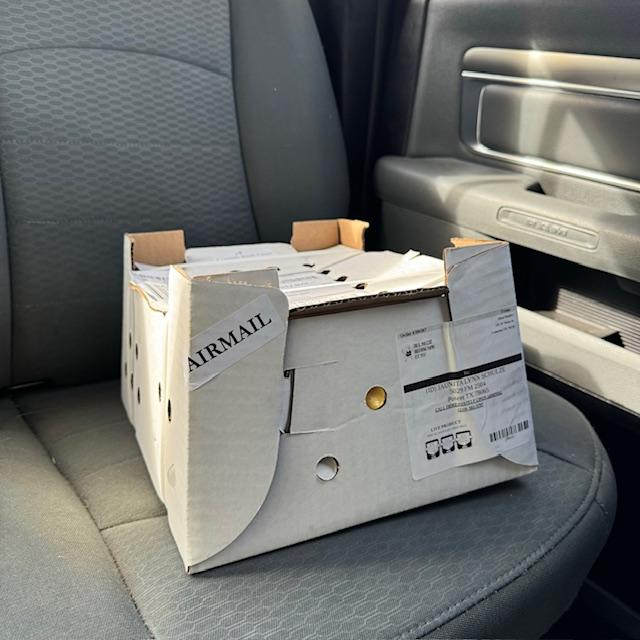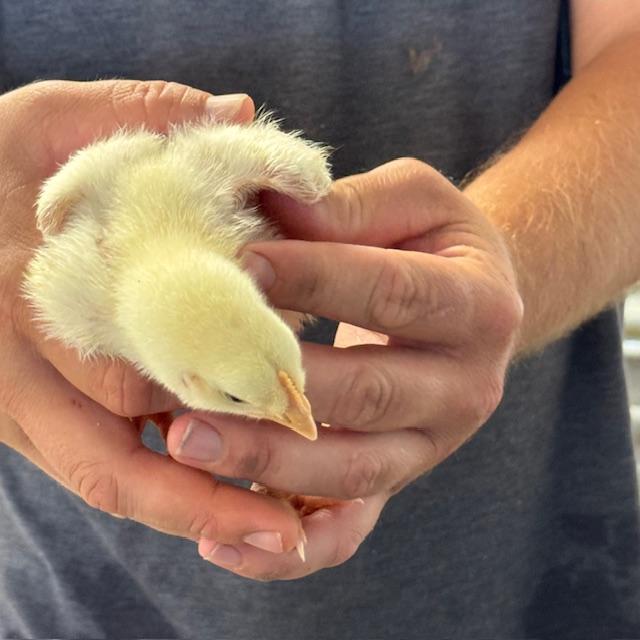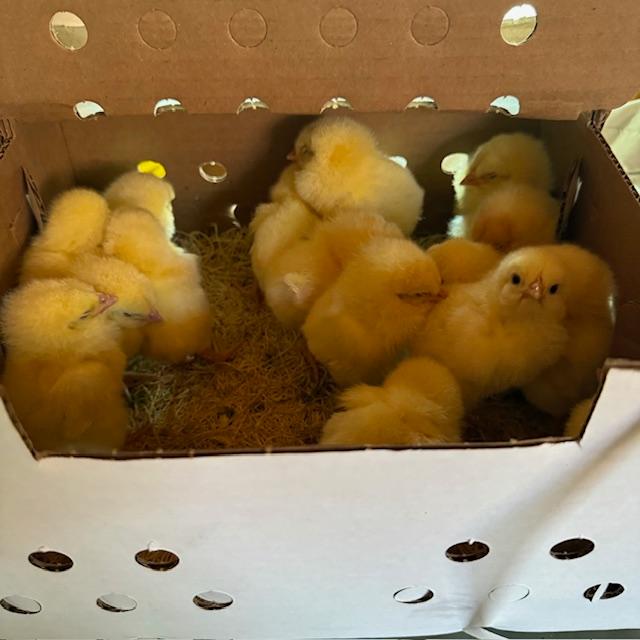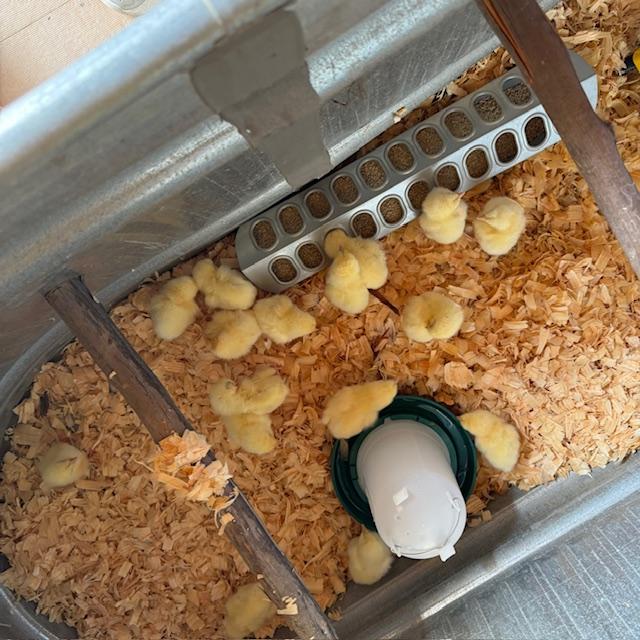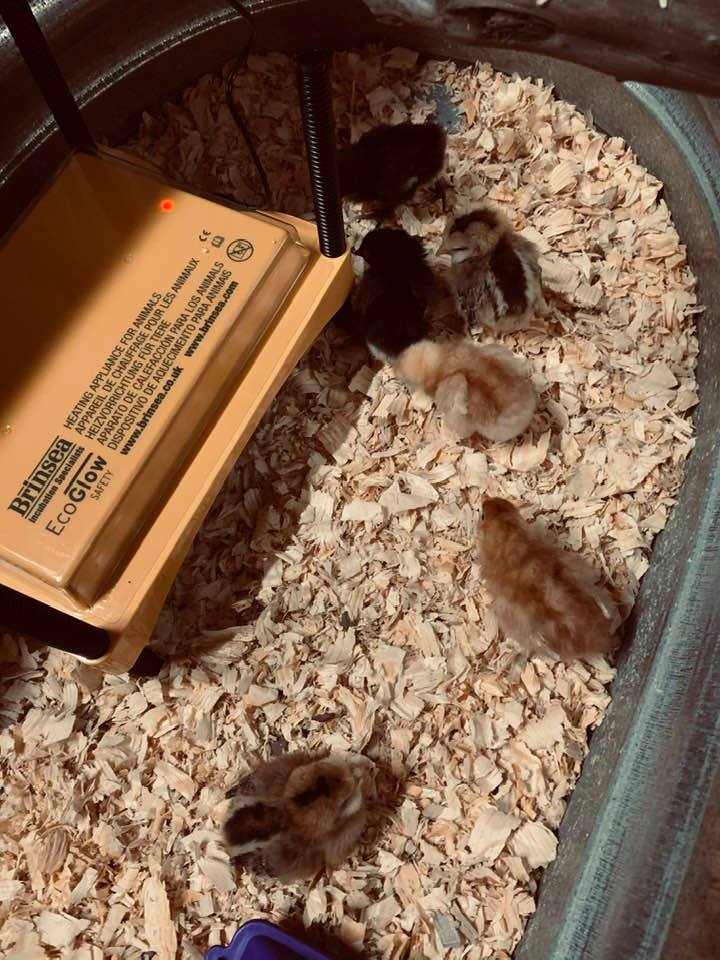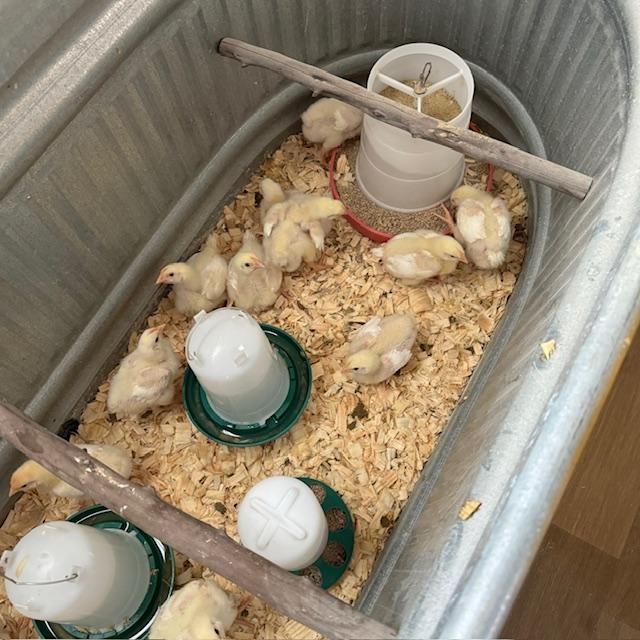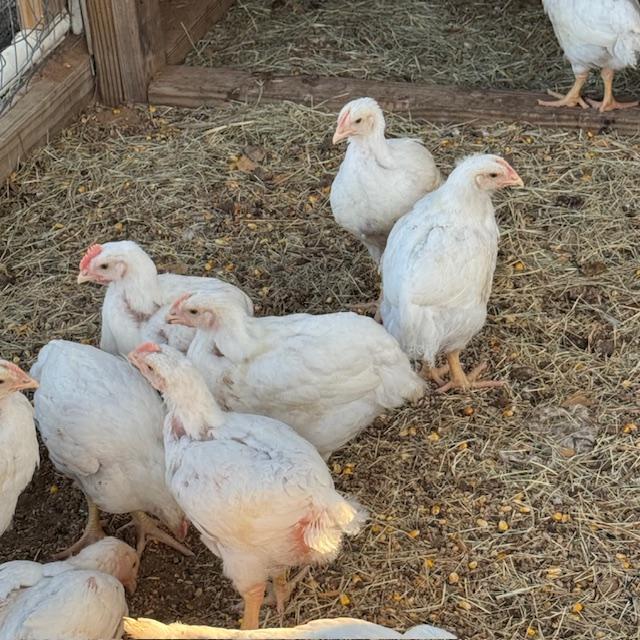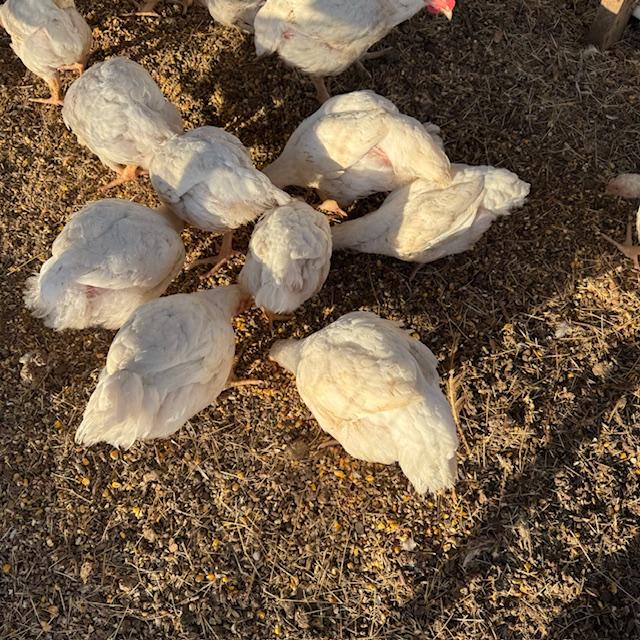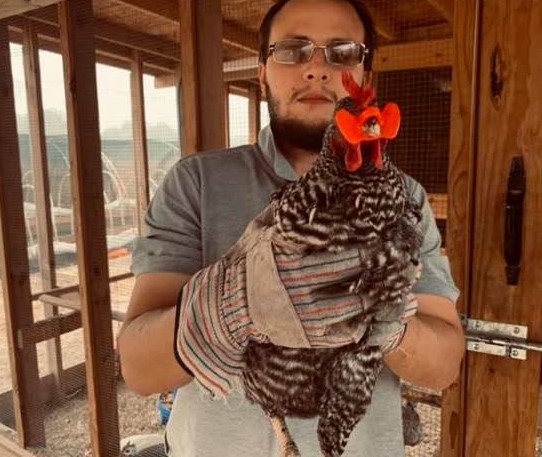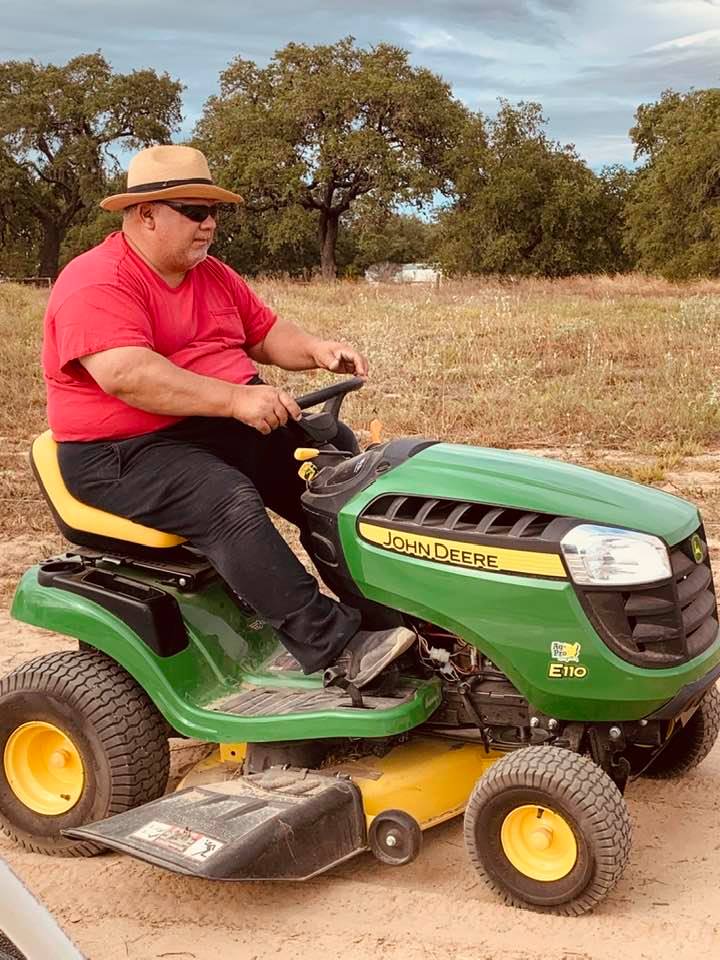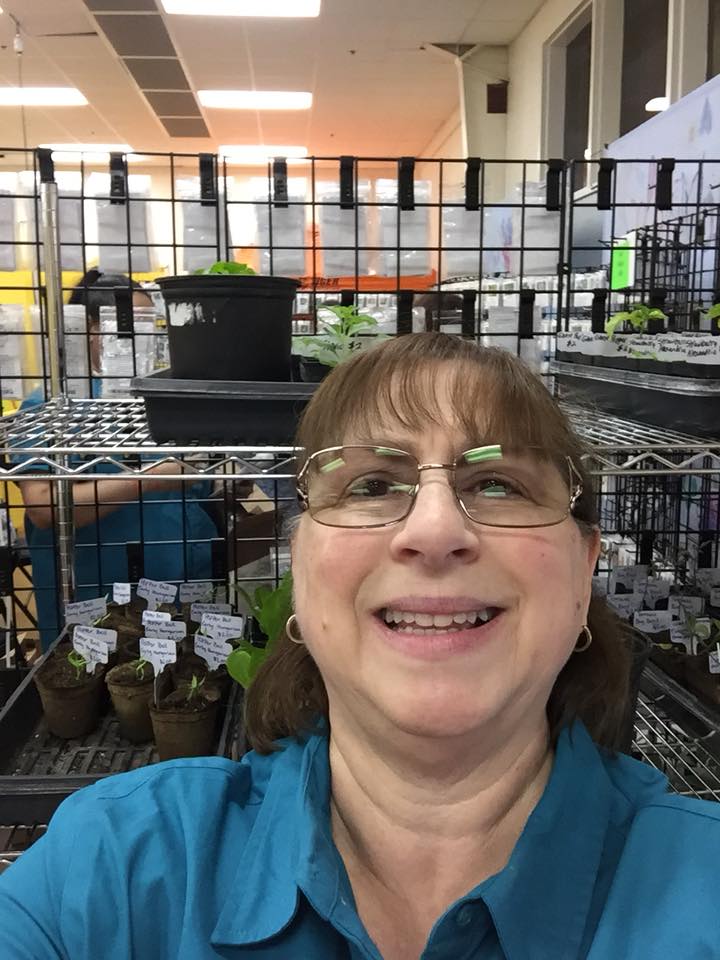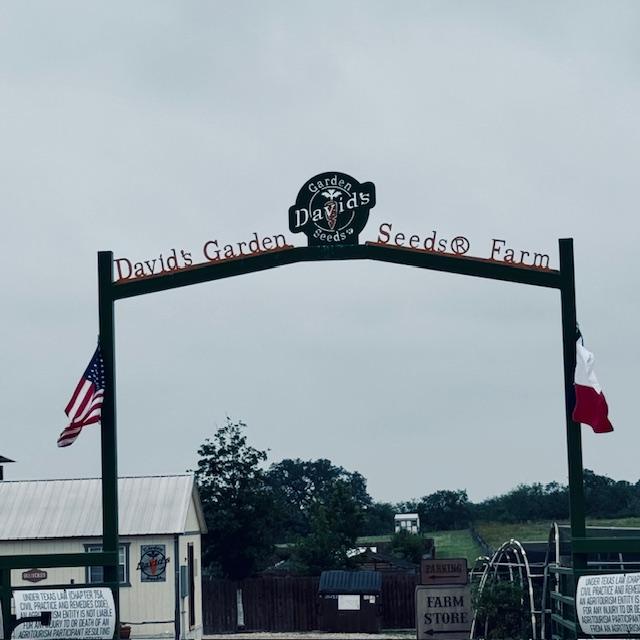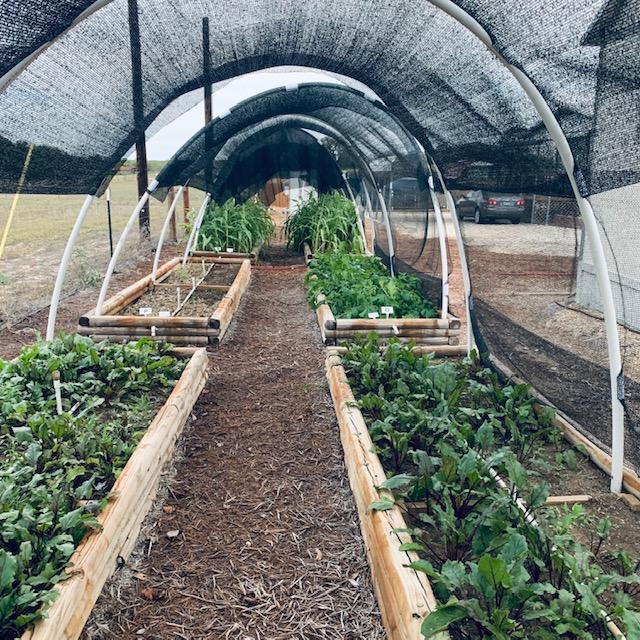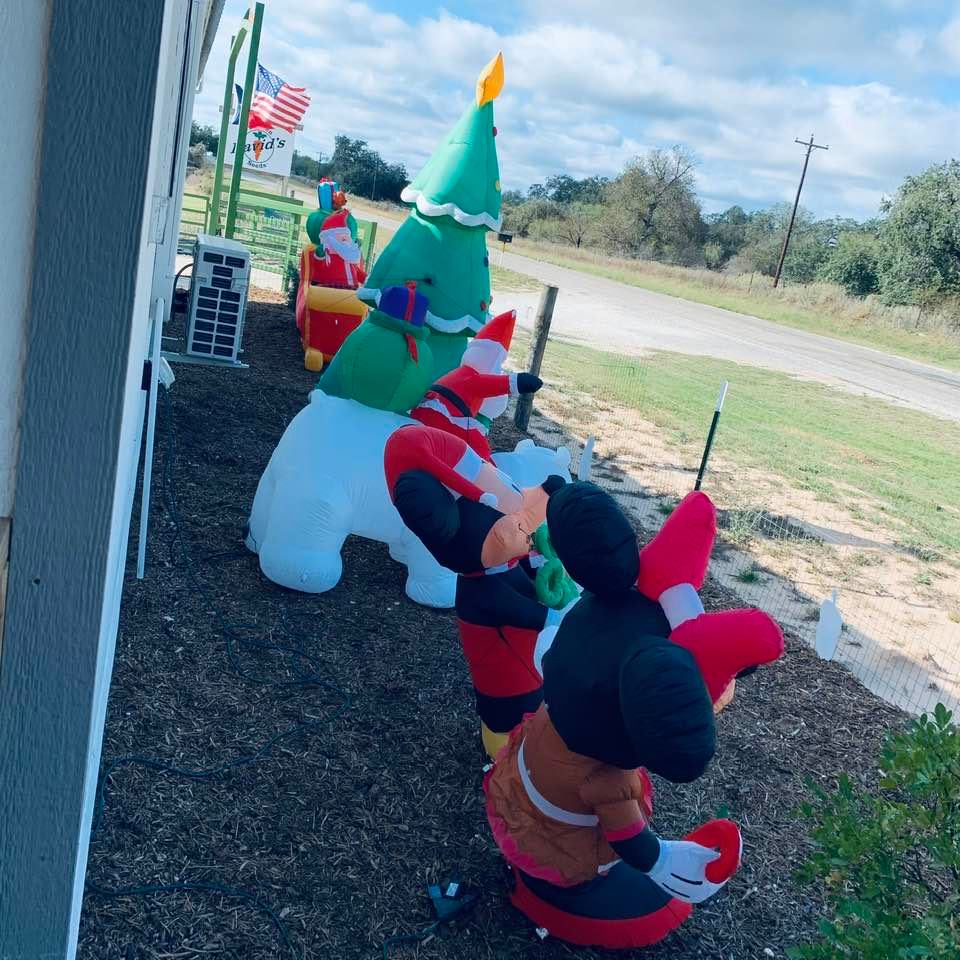Raising Meat Birds
For five years, we thought about raising meat birds. We have had meat birds from other farmers out here in the country and they are pretty tasty so we finally gave it a try. I ordered 15 from Ideal Poultry a few months ago. We finally received them at the post office on Wednesday, September 5, 2024.
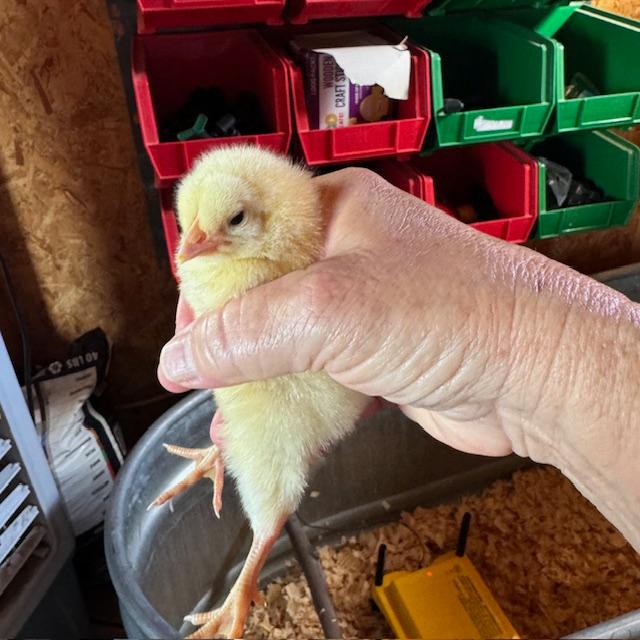 Raising meat chicks is a lot of work. First, unload the box, show each chick the water and put them in their brooder box.
Raising meat chicks is a lot of work. First, unload the box, show each chick the water and put them in their brooder box.Welcome to the world of raising meat chicks, a rewarding experience that not only fills your freezer with fresh chicken but also provides the satisfaction of knowing exactly where your food comes from. If you’re living on some farmland and ready to embark on this journey, you’ll find that raising Cornish Cross chicks for meat is a popular and effective choice.
Before we dive into the step-by-step process of raising meat birds, let’s talk about why raising meat chickens, particularly Cornish Cross, is such a great choice. These birds are specially bred for meat production. They grow quickly, converting feed efficiently into muscle, ensuring that you’ll have a bountiful harvest in just a few weeks.
You may be wondering, "Why is raising meat chickens better than store-bought chickens?" When you raise your own, you’re in control of their diet and environment, ensuring there are no unwanted hormones or antibiotics. Plus, the taste of fresh chicken is simply unbeatable.
Raising Meat Birds
Now, let's address the types of meat birds. While there are several, like the Red Ranger and Freedom Ranger, Cornish Cross chicks are often considered the best thanks to their rapid growth and exceptional size. They are ready to be processed as early as 8 weeks.
We chose Cornish Cross because they do grow quickly.
When it comes time to receive your day-old chicks, make sure you have a brooder ready. This is where your chicks will start their life, safe and warm. You’ll need a brooder box, a radiant warmer instead of a heat lamp, bedding, feeders, and waterers.
Our brooder is a metal trough from Tractor Supply filled with cedar wood chips.
Raising meat birds is all about creating the perfect environment for your new arrivals. The temperature in the brooder should be around 95°F, and you can gradually decrease it by 5°F each week as the chicks grow stronger.
Bedding is crucial too. Wood shavings are a popular choice, as they are absorbent and help keep the area dry, but avoid cedar shavings as they can be toxic to young chicks.
You’ll want to pay attention to spacing. A cramped brooder can lead to stressed chicks, which can impede their growth. Provide at least half a square foot per chick.
Your
chicks will need constant access to fresh, clean water. Use a chick
waterer that’s shallow enough to prevent them from accidentally
drowning. We actually place small rocks in the water so if they fall in, there is an easy way for them to get out.
Feeding your meat chicks is straightforward, but vital. Start them on a high-protein chick starter feed with at least 20% protein to support their rapid growth.
As they grow, you can transition them to a grower feed, which you’ll feed them until it’s time to process chickens for meat.
The first week is critical. You’ll need to watch for signs of distress, such as huddling together (which indicates they’re too cold) or panting (which means they’re too hot).
Handling the chicks gently helps them get used to human interaction and keeps them calm. It’s also a good check-up method to ensure they’re healthy.
Around week three, your chicks will be ready to move to a larger space. This could be an enclosed coop or a moveable chicken tractor, giving them access to fresh air and sunshine.
Cornish Cross chickens aren’t as active as other breeds, given their size, but they enjoy scratching and pecking around. Allow them that opportunity to promote natural behavior.
Make sure their new home is secure from predators like raccoons and hawks, as these predators are always on the lookout for easy prey.
Experience shows that adding a bit of apple cider vinegar to their water once or twice a week helps boost immunity and keep their systems healthy.
Pastured poultry can have access to grass and bugs, which can enhance meat flavor. However, monitor them as Cornish Cross can be prone to overeating.
At around 8 to 12 weeks, your Cornish Cross chickens
should weigh between 6-10 pounds and are ready to be processed. Their
uniform size makes meal planning strategically convenient. We started
processing our chickens at the end of October, a few every few days as
time allowed. We finished up in November. Matt is our processor and he
did a very good job.
Before processing, consider withholding feed for about 12 hours to ensure their crop empties, although always ensure they have access to water.
Processing chickens can be an emotional day, especially if you’ve grown attached. For your own sake, do not get attached to the meat birds. Get attached to your egg birds. Remember, the process is humane and part of sustainable living.
To process chickens for meat, you’ll need a setup that includes a kill cone, scalder, plucker, and cleaning area. Each plays a crucial role in preparing your chicken efficiently.
Killing cones are used to humanely restrain the chicken. Gravity helps with the bleeding process. This method is quick and reduces stress to the bird.
The scalder is used to loosen the feathers, making plucking simpler. Water should be about 145°F for effective scalding.
Plucking can be done by hand or with a machine. A mechanical plucker saves time and effort, especially if you are processing many birds.
Once plucked, evisceration begins. Be careful to remove all organs while keeping the meat clean. This can be daunting but gets easier with practice.
After cleaning, you’ll want to chill the birds immediately in ice water to quickly bring the temperature down and ensure safety and tenderness.
Some people prefer to bag and vacuum seal each chicken right away, while others let them age in a refrigerator for a couple of days for enhanced flavor.
Don’t forget to compost or properly dispose of the offal. This is part of responsible farming and helps minimize waste.
Once your birds are chilled and packaged, they’re ready for the freezer. There’s great satisfaction in knowing your effort is paying off with delicious, healthy meat.
Raising meat chicks like Cornish Cross for meat doesn’t just fill your freezer—it fills you with a sense of accomplishment and pride in self-sufficiency.
The real reward comes weeks later when you’re savoring that juicy, flavorful chicken that you raised yourself.
If you’ve ever been concerned about food safety and the origins of your meat, raising your own chickens allows peace of mind.
Many enthusiasts find that raising and processing chickens brings them closer to their food and deepens their appreciation for the meals they consume.
Not only does this practice provide fresh, hormone-free chicken, but it often costs less than buying equivalent quality organic meat from the store.
The life skills acquired through this process are invaluable. From caring for animals to processing, you gain a deeper respect for farmers and food producers.
Access to fresh chicken isn’t the only benefit. Raising chickens for meat can be a family activity, teaching kids responsibility and the value of hard work.
You might even consider diversifying your operation by trying different meat breeds or experimenting with different feeding regimens.
Raising meat birds could also lead to further adventures in poultry, such as egg farming or even raising ducks or turkeys for meat.
There’s a vibrant community of poultry enthusiasts out there, sharing tips and experiences that can enrich your journey and make it more rewarding.
So, if you’re ready to embrace the lifestyle and put in the effort, raising meat chicks could be the next fulfilling step in your farmstead plans.
Consider joining local poultry clubs or online forums to connect with people who share your interests and can offer valuable advice.
Seeing the process through from chick to table can be deeply rewarding and offers a unique connection to the food on your plate.
The taste difference will surprise you. Fresh chicken has a depth of flavor that store-bought poultry rarely matches.
You’ll gain appreciation not only for the taste but for the quality and nutrition of the meat you’ve raised yourself.
As with any venture, there can be challenges. However, the learning curve is manageable with research and a little patience.
Expanding your operation might lead to a small business opportunity, selling farm-fresh meat to local community members.
As you grow more experienced in raising meat birds, consider investing in better equipment or exploring different poultry management techniques.
There’s something profound in knowing that every step of your chicken’s life was supported by your effort and care.
With each batch, you’ll refine your process, learning more efficient ways to raise and process chickens for meat.
Feeling connected to the land and your food evokes an age-old satisfaction that modern life often overlooks.
You can be part of a movement towards sustainable living, reducing your carbon footprint, and ensuring animal welfare.
At the end of the journey of raising meat birds, you’ll understand the value of sustenance and the beauty of nurturing life on your land.
So whether you’re looking to reduce food costs, improve meat quality, or simply try something new, raising meat birds, namely Cornish Cross chicks, is a step worth taking.
Sharing your experiences with friends and family might inspire others to embark on their own farming adventures.
Whatever your reasons for starting, the experience of raising meat chickens holds lessons both practical and profound, enriching in ways that defy simple explanation.
Return from Meat birds to Raise Chickens
Anything To Share On This Topic?
Would you like to share additional information about this topic with all of us?
Since 2009, over 2,000,000 home gardeners, all across the USA, have relied on David's Garden Seeds® to grow beautiful, productive gardens. Trust is at the heart of it. Our customers know David's Garden Seeds® stocks only the highest quality seeds available. Our mission is to become your lifetime supplier of quality seeds. It isn't just to serve you once; we want to earn your trust as the primary supplier of all of your garden seeds.
Watch Our 2022 TV Commercial!
Sing Along To Our Jingle
♪♫♪♪ ♫ ♪ ♫♪♫♫
♪♫♪♪♫♫
Peppers and peas
And lots of yummy greens
You can't go wrong
With Squash This Long
At David's Garden Seeds
♪ ♫ ♪ ♫
Our New 2024 TV Ad
Please like and subscribe on YouTube and come visit us at our Farm Store! The music on our TV ad was written, played, and sung by our son, Matthew Schulze. You can meet him when you come to the farm. He just might give you a tour. Ask him to grab a guitar and sing our jingle that he wrote.

We are David's Garden Seeds®. If you need great seeds, we've got over 1,200 varieties to choose from.
Subscribe To Mrs. David's Garden Seeds® Newsletter For FREE!
Find out what is going on down on the farm by reading our blog and by subscribing to our free newsletter for all of the information going down at David's Garden Seeds® and on the farm. I love to share helpful information with you. Please let your friends know and y'all come on down for a visit when you get the chance. We would love to meet you!
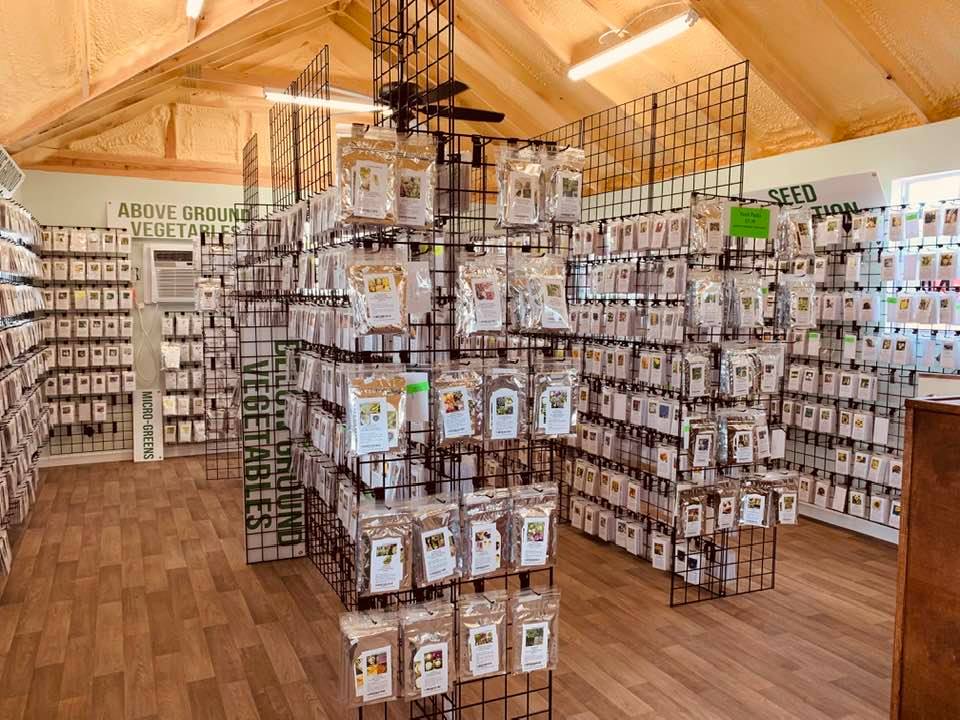
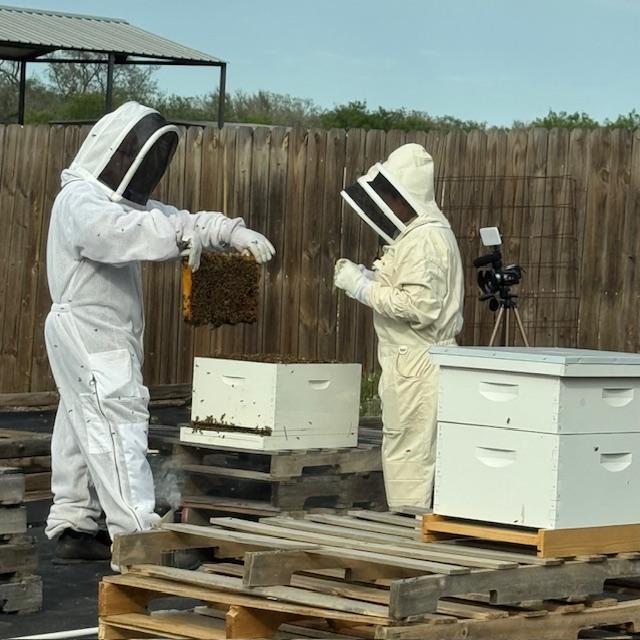 Our bee hives
Our bee hives Our fish pond
Our fish pond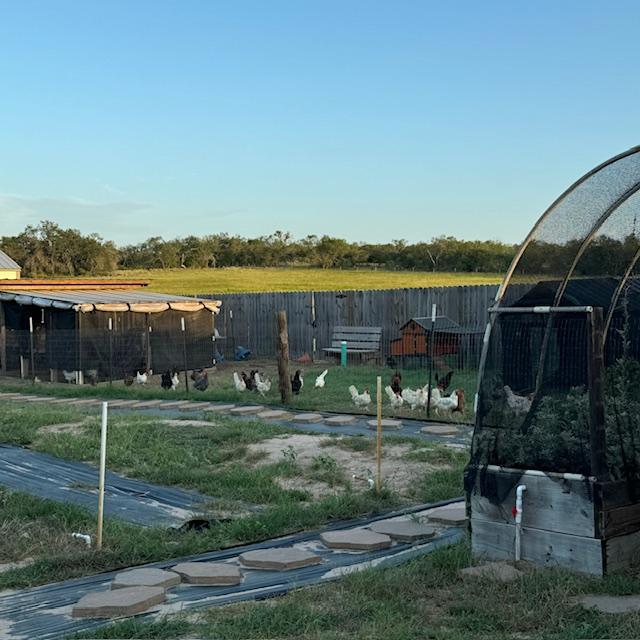 Our chickens
Our chickens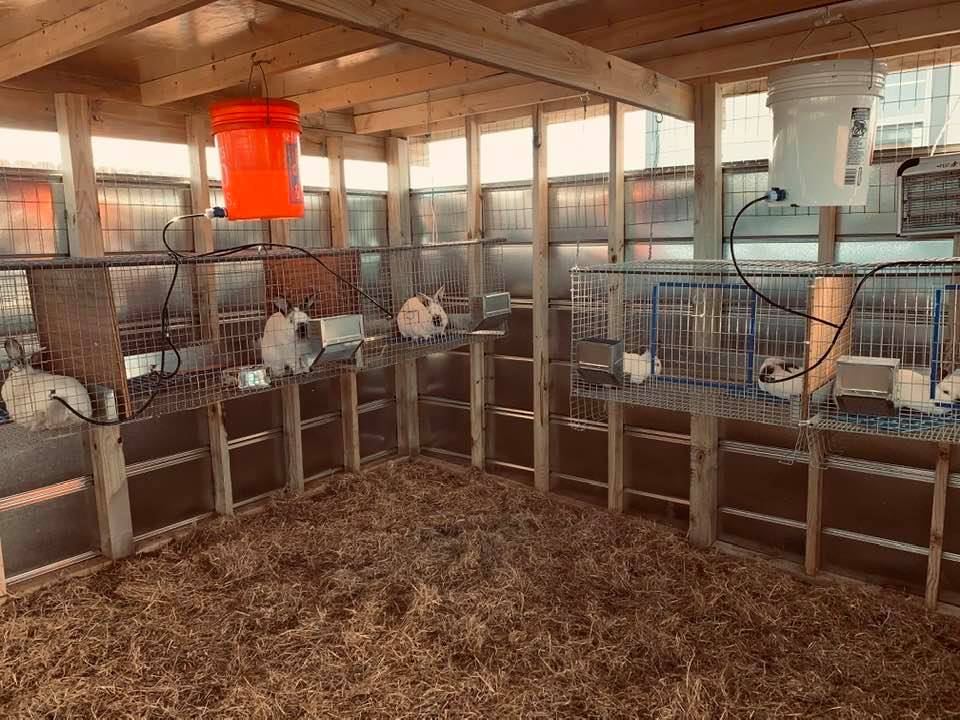 Our bunny rabbits
Our bunny rabbits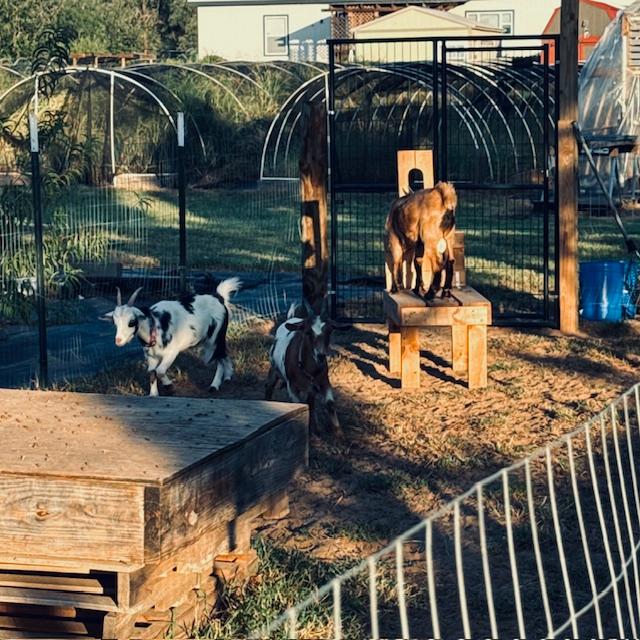 Our Nigerian Dwarf goats
Our Nigerian Dwarf goats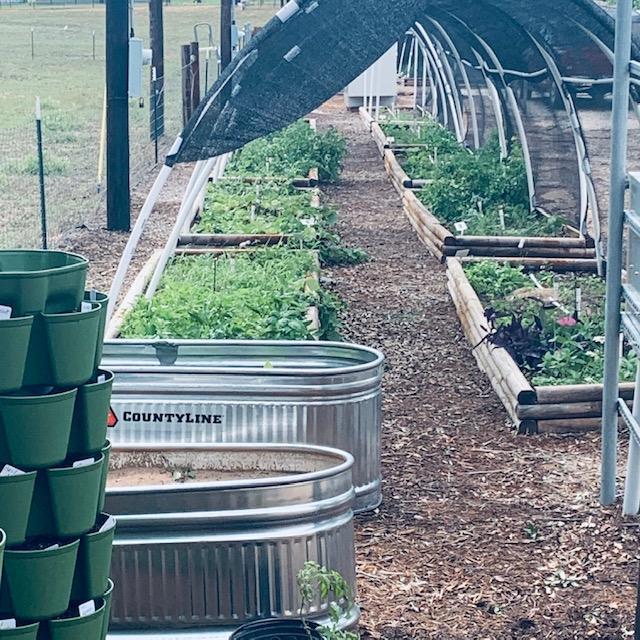 A few of our raised garden beds
A few of our raised garden beds Our orchard and hoop houses
Our orchard and hoop houses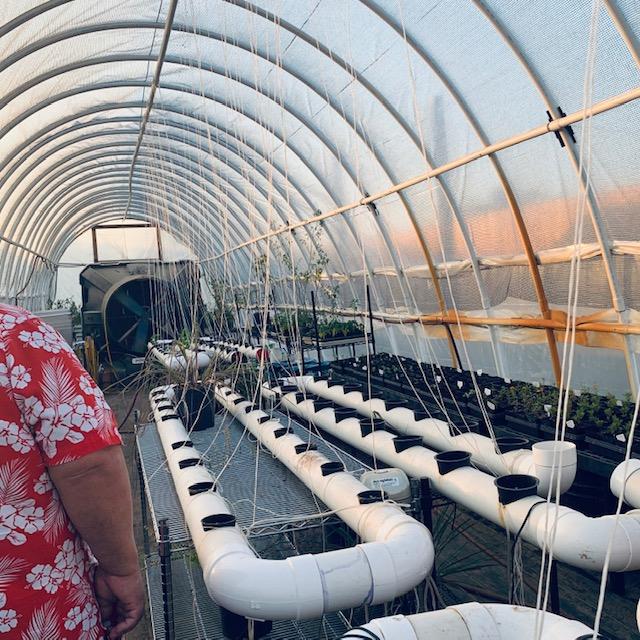 Inside our high tunnel
Inside our high tunnel Take a selfie at our official selfie spot!
Take a selfie at our official selfie spot! Flowers, bees, and butterflies are everywhere!
Flowers, bees, and butterflies are everywhere!
